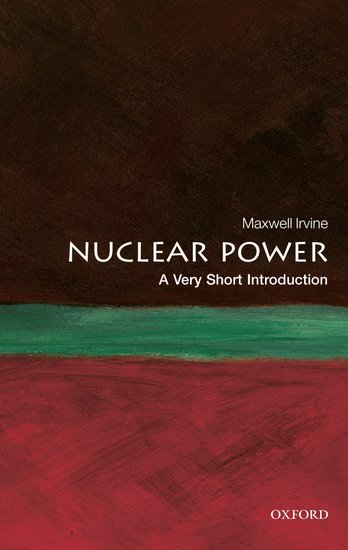Home >
A Very Short Introduction >
Cancer (Business & Economics)
A Very Short Introduction | Business & Economics
Cancer
ISBN: 9780199584970
Series: A Very Short Introduction
Cancer (Business & Economics)
A Very Short Introduction Cancer (Business & Economics) Media > Books > Non-Fiction > Education Books Expect Delays of Up to 4 Weeks| Order Below |
ISBN
9780199584970 (10-digit ISBN: 0199584974)
- Description
- Key Features
- Series Description
- Table of Contents
- Explains, in non-technical language, what cancer is and what it does
- Uses examples of cancer healthcare from around the world
- Explores the political and economic context of cancer care
- Considers the future of cancer care, research, and breakthroughs in realising a cure
In 1961 John F. Kennedy pledged to put a man on the moon by the end of the decade. Nine years later, Neil Armstrong and Buzz Aldrin walked on the moon. Ten years later, Richard Nixon echoed this pledge by declaring a 'war' on cancer. More than 30 years later, however, cancer remains one of the largest causes of death worldwide, with around 1 in 3 developing the disease. Curing cancer is not 'rocket science', but the question is, why has cancer proved to be harder to tackle than the moon landings turned out to be?
Cancer research is a major economic activity. There are constant improvements in treatment techniques that result in better cure rates and increased quality and quantity of life for those with the disease, yet stories of breakthroughs in a cure for cancer are often in the media.
In this Very Short Introduction Nick James, founder of the CancerHelp UK website, examines the trends in diagnosis and treatment of the disease, as well as its economic consequences. Asking what cancer is and what causes it, he considers issues surrounding expensive drug development, what can be done to reduce the risk of developing cancer, and the use of complementary and alternative therapies.
Oxford's Very Short Introductions series offers concise and original introductions to a wide range of subjects--from Islam to Sociology, Politics to Classics, Literary Theory to History, and Archaeology to the Bible.
Not simply a textbook of definitions, each volume in this series provides trenchant and provocative--yet always balanced and complete--discussions of the central issues in a given discipline or field. Every Very Short Introduction gives a readable evolution of the subject in question, demonstrating how the subject has developed and how it has influenced society. Eventually, the series will encompass every major academic discipline, offering all students an accessible and abundant reference library.
Whatever the area of study that one deems important or appealing, whatever the topic that fascinates the general reader, the Very Short Introductions series has a handy and affordable guide that will likely prove indispensable.
Please note: As this series is not ELT material, these titles are not subject to discount.
1: The size of the cancer problem
2: How does cancer develop?
3: How is cancer treated?
4: Cancer research
5: The costs of cancer care
6: Alternative and complementary approaches to cancer care
7: The future shape of cancer care
In 1961 John F. Kennedy pledged to put a man on the moon by the end of the decade. Nine years later, Neil Armstrong and Buzz Aldrin walked on the moon. Ten years later, Richard Nixon echoed this pledge by declaring a 'war' on cancer. More than 30 years later, however, cancer remains one of the largest causes of death worldwide, with around 1 in 3 developing the disease. Curing cancer is not 'rocket science', but the question is, why has cancer proved to be harder to tackle than the moon landings turned out to be?
Cancer research is a major economic activity. There are constant improvements in treatment techniques that result in better cure rates and increased quality and quantity of life for those with the disease, yet stories of breakthroughs in a cure for cancer are often in the media.
In this Very Short Introduction Nick James, founder of the CancerHelp UK website, examines the trends in diagnosis and treatment of the disease, as well as its economic consequences. Asking what cancer is and what causes it, he considers issues surrounding expensive drug development, what can be done to reduce the risk of developing cancer, and the use of complementary and alternative therapies.
Key Features
- Explains, in non-technical language, what cancer is and what it does
- Uses examples of cancer healthcare from around the world
- Explores the political and economic context of cancer care
- Considers the future of cancer care, research, and breakthroughs in realising a cure
Series Description
Oxford's Very Short Introductions series offers concise and original introductions to a wide range of subjects--from Islam to Sociology, Politics to Classics, Literary Theory to History, and Archaeology to the Bible.
Not simply a textbook of definitions, each volume in this series provides trenchant and provocative--yet always balanced and complete--discussions of the central issues in a given discipline or field. Every Very Short Introduction gives a readable evolution of the subject in question, demonstrating how the subject has developed and how it has influenced society. Eventually, the series will encompass every major academic discipline, offering all students an accessible and abundant reference library.
Whatever the area of study that one deems important or appealing, whatever the topic that fascinates the general reader, the Very Short Introductions series has a handy and affordable guide that will likely prove indispensable.
Please note: As this series is not ELT material, these titles are not subject to discount.
EASY ORDER FORM
PRICES LISTED INCLUDE CONSUMPTION TAX
Price Before Tax:
¥1,790


